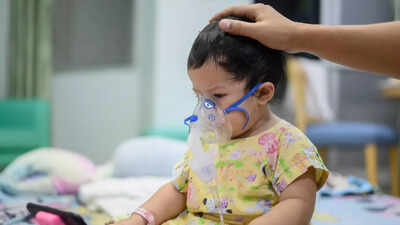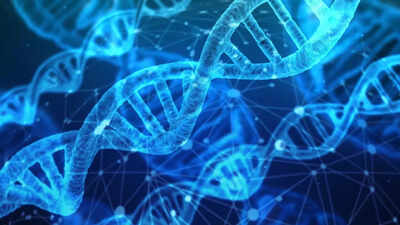Why do we lose our appetite when we’re sick? Science explains what happens inside your body |

It’s a familiar story: the fever rises, your throat hurts, and suddenly even your favourite food looks unappetizing. You know your body needs fuel to fight the infection, yet you can barely think about eating. According to a 2016 study published in Immunometabolism: Molecular Mechanisms, Diseases, and Therapies 2016, your loss of appetite isn’t just in your head. When you’re unwell, your immune system releases cytokines, small proteins that trigger inflammation and signal the brain’s hypothalamus to suppress hunger. This helps your body focus its energy on recovery instead of digestion. In short, that empty stomach feeling is actually your body’s survival instinct at work.
How the immune response affects appetite when you’re sick
When infection strikes, your immune system becomes the main energy consumer. White blood cells start fighting harmful microbes, and the body releases cytokines to manage inflammation. These same cytokines interact with hunger hormones like ghrelin and leptin, suppressing appetite. It’s your body’s way of saying, “Let’s pause eating until the threat is handled.”
How fever and inflammation reduce appetite naturally
During fever, the body’s temperature rises to make it harder for pathogens to survive. But this also slows digestion, as your gut diverts energy to immune activity. Inflammation further alters taste and smell, making food seem bland or unpleasant. That’s why dal-chawal or khichdi often feels easier to eat than anything spicy or fried when you’re sick.
How appetite loss helps the body recover
Mild appetite loss can actually benefit your immune system. Some studies suggest that reduced food intake during infection may help white blood cells function more effectively and reduce oxidative stress. Your body uses stored energy for cell repair rather than digestion. However, it’s still crucial to stay hydrated and eat light, nutritious meals like soups, curd, or fruit.
How the brain and appetite are connected during illness
The hypothalamus in your brain controls hunger, but when you’re sick, inflammation alters its signals. Normally, eating triggers dopamine release, creating a sense of reward and pleasure. During illness, this reward circuit weakens, making your usual comfort foods less appealing. This neurological change helps your body prioritize rest and healing over indulgence.
How infections directly affect appetite and digestion
Certain infections, especially those caused by viruses and bacteria, can directly suppress hunger. Stomach infections or food poisoning irritate the gut, leading to nausea or discomfort. Respiratory infections can dull your taste buds and reduce smell, which naturally lowers food cravings. Even after recovery, the digestive system may take a few days to fully reset.
How to manage appetite loss when you’re sick
If eating feels impossible, focus on small, frequent meals that are gentle on your stomach. Light foods like clear soups, khichdi, mashed potatoes, or fruit smoothies provide energy without causing heaviness. Herbal teas with ginger or tulsi can help settle nausea. Avoid caffeine, fried foods, or very spicy dishes, as they can upset your stomach further.
How long does appetite loss last during illness
For most people, appetite loss lasts only a few days, typically the same period your immune system is most active. Once inflammation decreases and cytokine levels drop, your hunger naturally returns. If you notice your appetite doesn’t come back after a week or you experience extreme fatigue or weight loss, consult a doctor for evaluation.Losing your appetite when you’re sick is not a weakness; it’s your body’s intelligent way of protecting itself. The immune system temporarily reduces hunger to redirect resources toward fighting infection and repairing cells. Staying hydrated and eating small, nourishing meals is enough until your body fully recovers. So, the next time your plate feels less tempting during a fever, know that science says it’s completely normal and even helpful.Also read| How festival firecrackers threaten baby lungs: What science reveals











